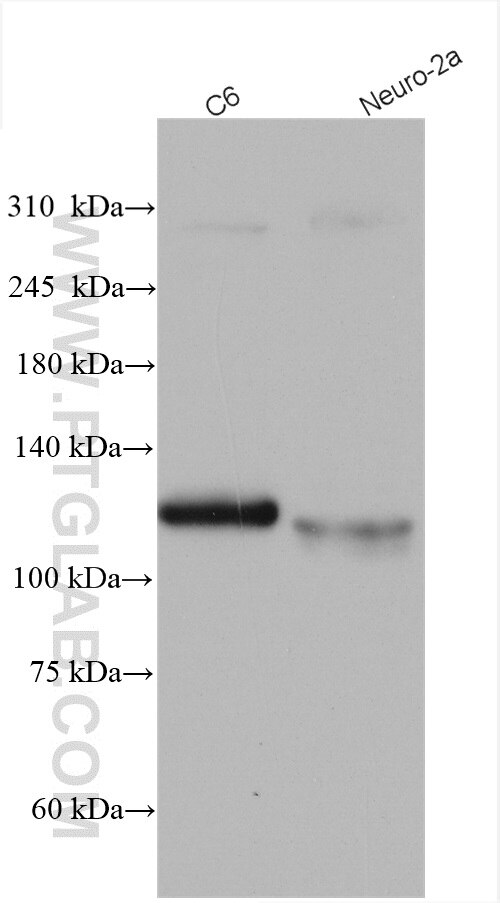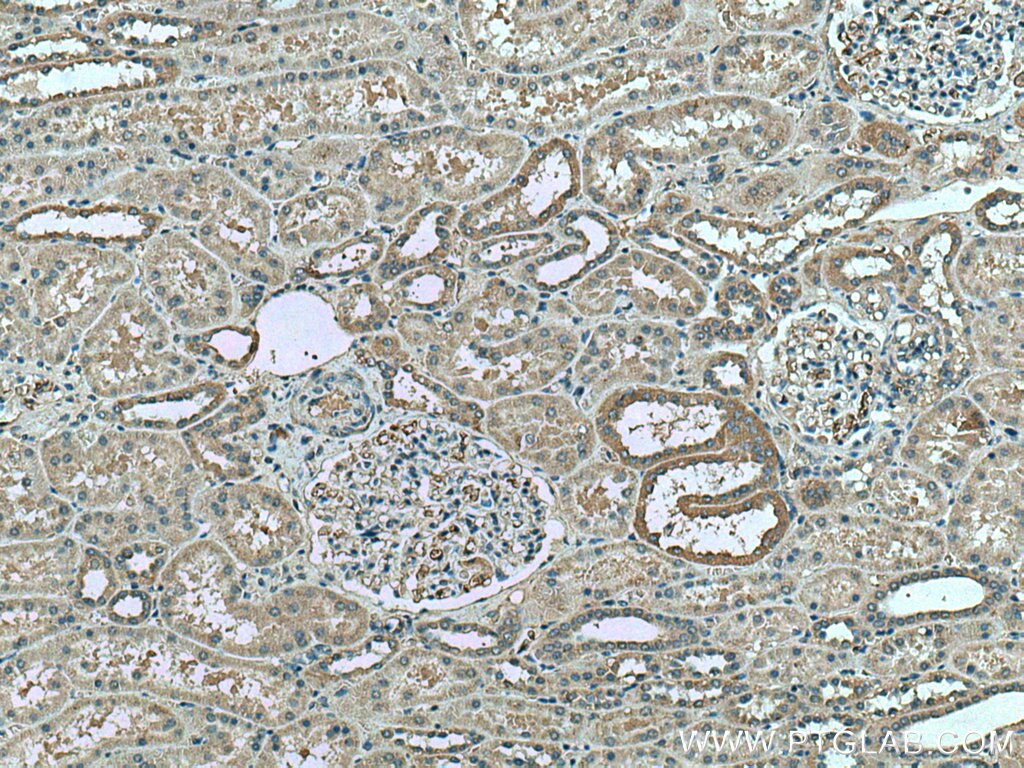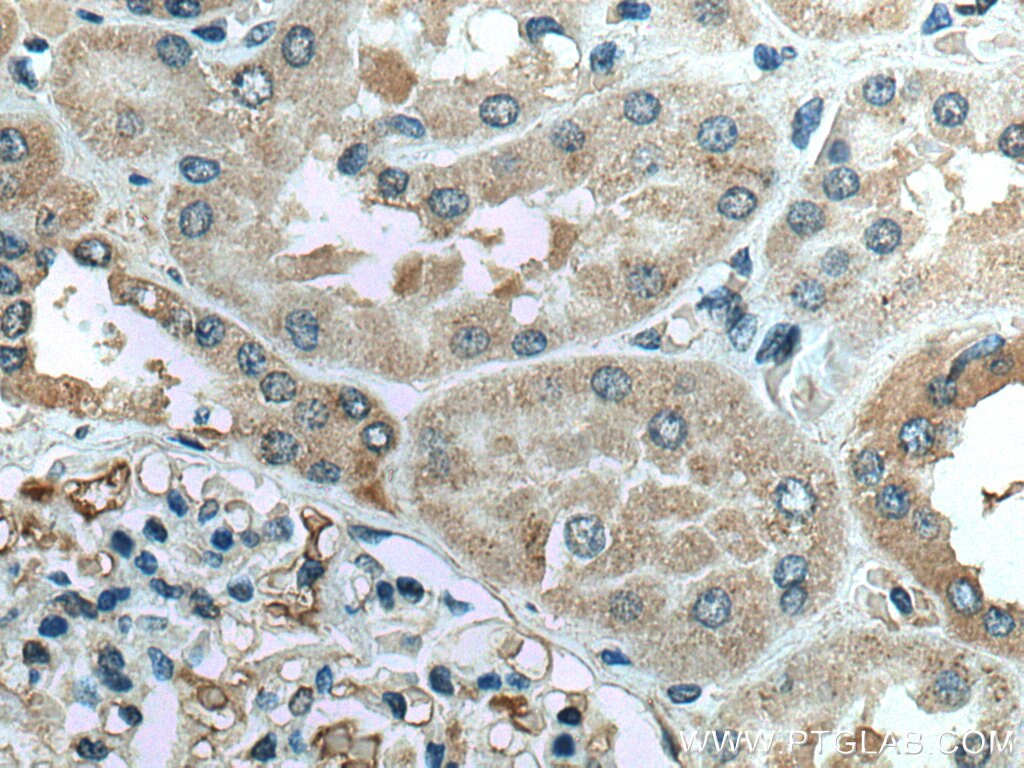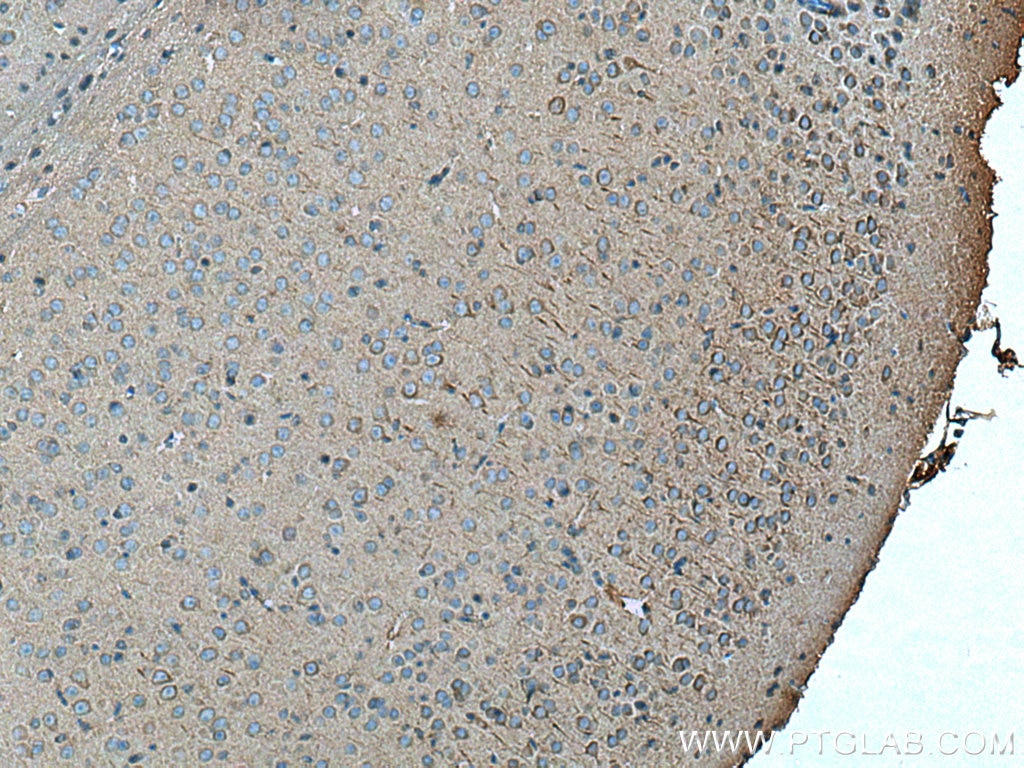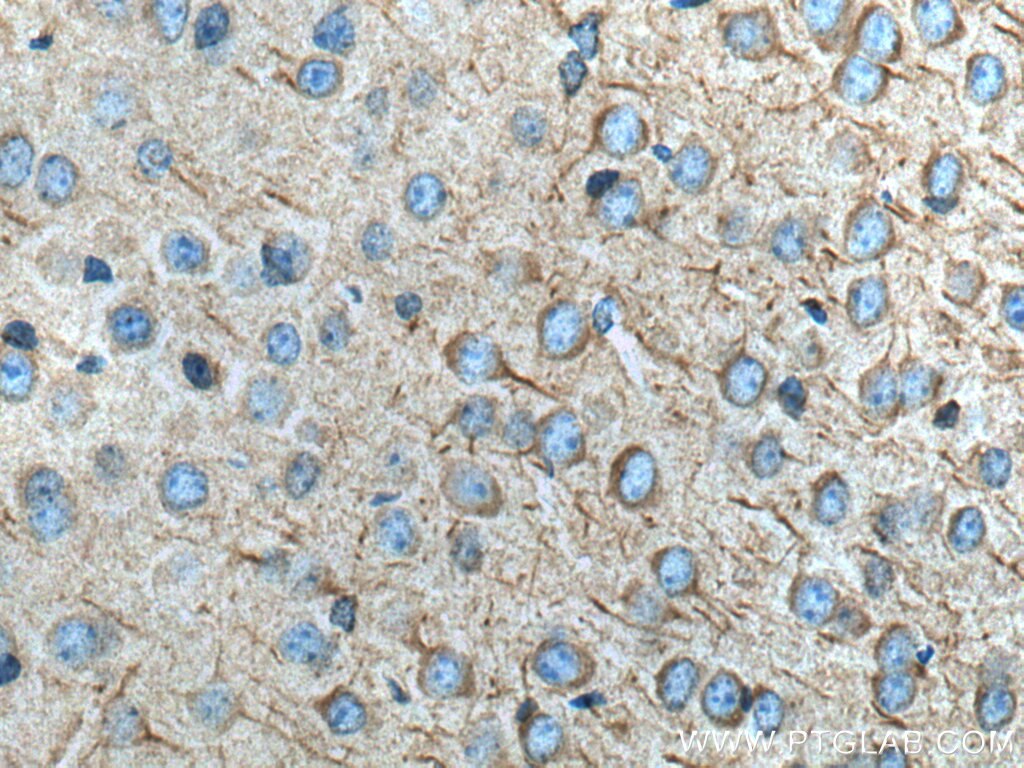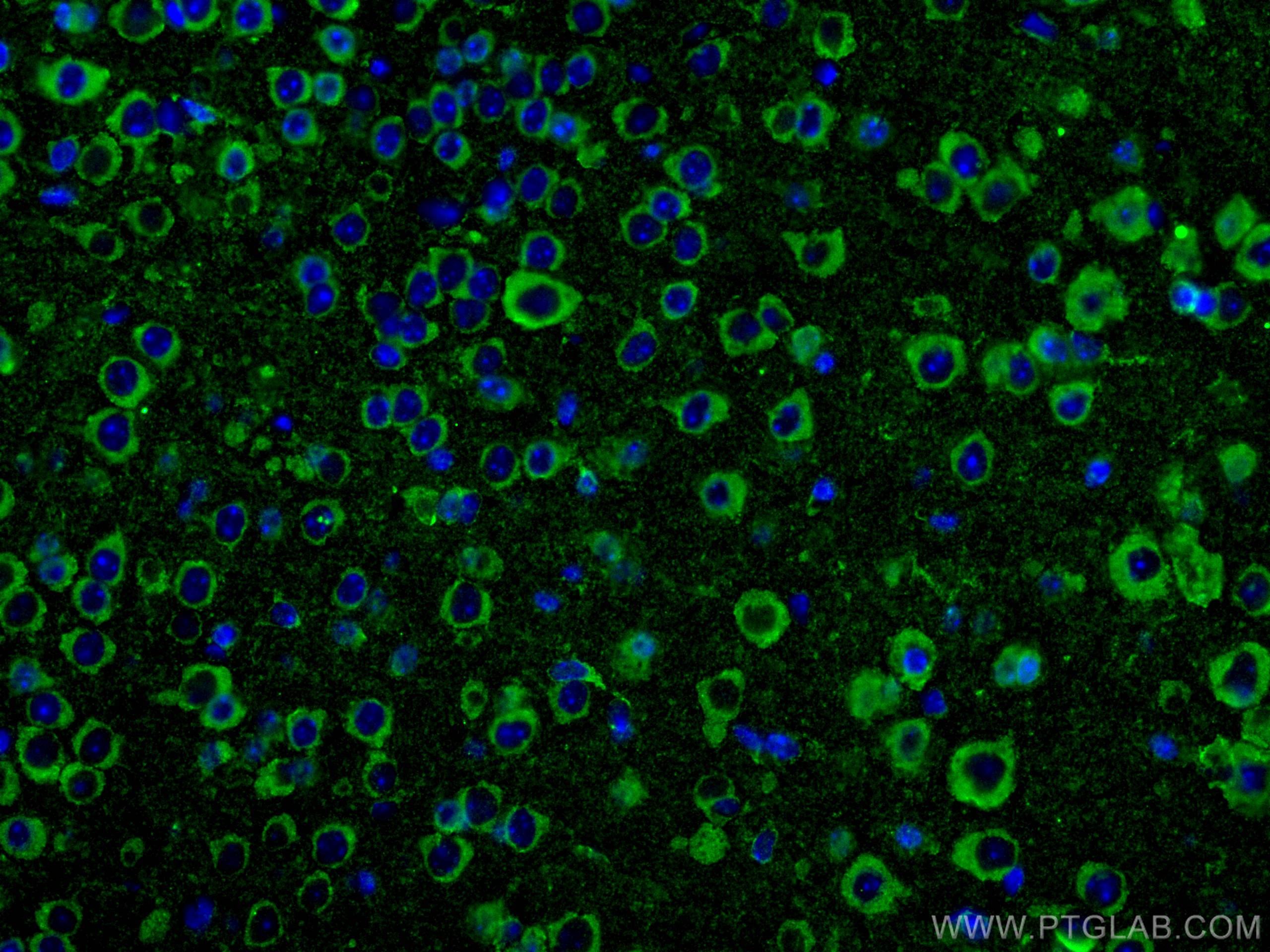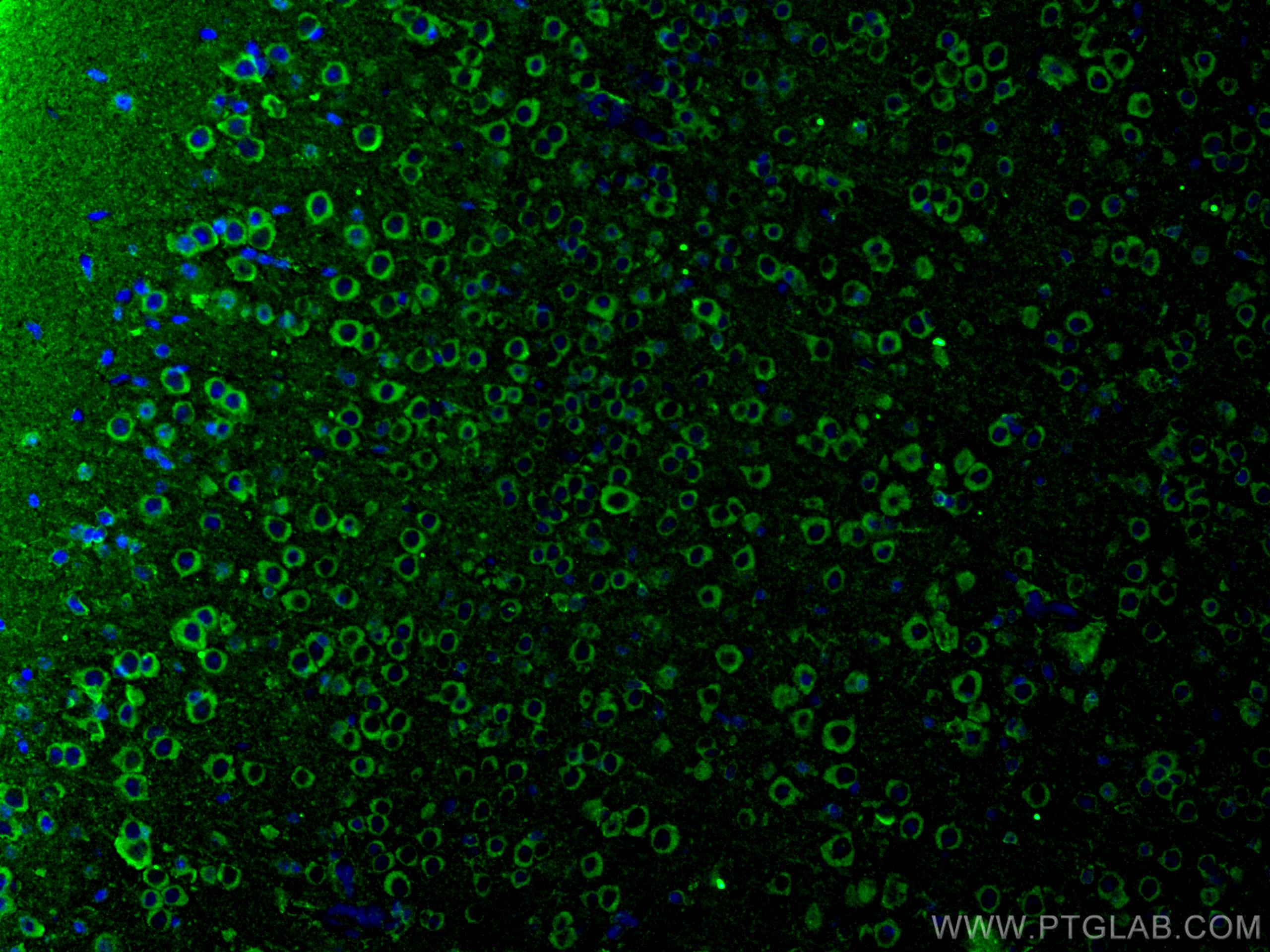Validation Data Gallery
Tested Applications
| Positive WB detected in | C6 cells, Neuro-2a cells |
| Positive IHC detected in | human kidney tissue, mouse brain tissue Note: suggested antigen retrieval with TE buffer pH 9.0; (*) Alternatively, antigen retrieval may be performed with citrate buffer pH 6.0 |
| Positive IF-P detected in | mouse brain tissue |
Recommended dilution
| Application | Dilution |
|---|---|
| Western Blot (WB) | WB : 1:500-1:2000 |
| Immunohistochemistry (IHC) | IHC : 1:50-1:500 |
| Immunofluorescence (IF)-P | IF-P : 1:50-1:500 |
| It is recommended that this reagent should be titrated in each testing system to obtain optimal results. | |
| Sample-dependent, Check data in validation data gallery. | |
Product Information
28061-1-AP targets FAM135B in WB, IHC, IF-P, ELISA applications and shows reactivity with Human, Rat, mouse samples.
| Tested Reactivity | Human, Rat, mouse |
| Host / Isotype | Rabbit / IgG |
| Class | Polyclonal |
| Type | Antibody |
| Immunogen | FAM135B fusion protein Ag27897 相同性解析による交差性が予測される生物種 |
| Full Name | family with sequence similarity 135, member B |
| Observed molecular weight | 126-155 kDa |
| GenBank accession number | BC106912 |
| Gene Symbol | FAM135B |
| Gene ID (NCBI) | 51059 |
| RRID | AB_2881050 |
| Conjugate | Unconjugated |
| Form | Liquid |
| Purification Method | Antigen affinity purification |
| UNIPROT ID | Q49AJ0 |
| Storage Buffer | PBS with 0.02% sodium azide and 50% glycerol , pH 7.3 |
| Storage Conditions | Store at -20°C. Stable for one year after shipment. Aliquoting is unnecessary for -20oC storage. |
Protocols
| Product Specific Protocols | |
|---|---|
| WB protocol for FAM135B antibody 28061-1-AP | Download protocol |
| IHC protocol for FAM135B antibody 28061-1-AP | Download protocol |
| IF protocol for FAM135B antibody 28061-1-AP | Download protocol |
| Standard Protocols | |
|---|---|
| Click here to view our Standard Protocols |
